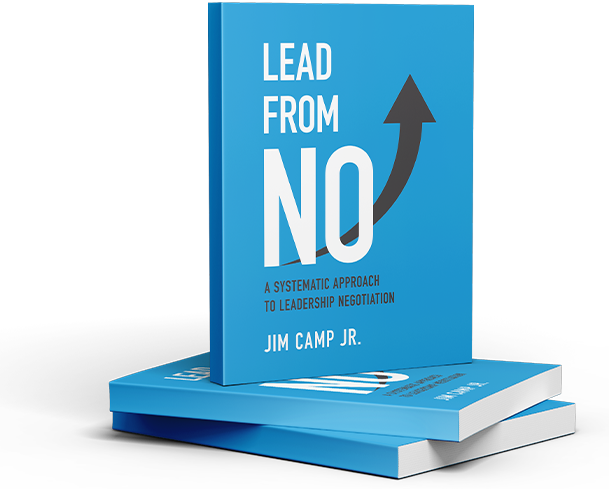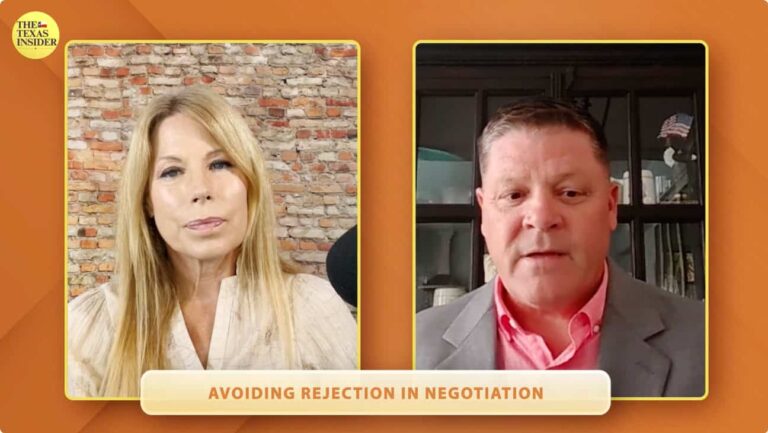Everyone has experienced a blocker in their lives, especially if you work in sales.
The blockers circle the real decision-makers, like bodyguards who limit access to the movers, shakers, and decision-makers.
Sometimes blockers don’t only block people, but information. They become a vault that encapsulates the information that others want.
Some common blockers we see are:
• Assistants to decision-makers
• Team members who are in the decision process but fake or exaggerate their authority
• People not in the decision process, but represent they have influence with the decision-makers.
Most of you have run into blockers like these, and they’ve probably slowed or even stopped some of you.
Blockers with relationships to the real decision-makers do provide value. The circle of protection they provide creates a filter that keeps out bad pitches and timewasters. It also hides potential mistakes and keeps decision-makers out of trouble. Thus, blocking behavior is encouraged in some organizations.
As a negotiator, your job is to identify, avoid or get around any attempts at blocking. You want to speak directly to the decision-maker.
To reach the decision maker, you need first to understand what motivates the behavior of a blocker. According to the Camp System, understanding the needs of blockers is the key to skillfully getting around them.
Surprisingly, blocking is a natural human behavior of humans. Let me explain why.
A client named Ace had a grandfather who went to a rehabilitation center after a bad fall. Two weeks later, the rehab center determined that grandpa was well enough to be transferred out. The center let him stay at rehab until his next living arrangement was set. But this wouldn’t be covered by insurance; it would be at his own expense.
Three days later in rehab, grandpa fell again and hit his head. Ace knew that grandpa needed more time in rehab and disagreed with his grandfather’s release.
He tried to contact mid-level administrators at the rehab center, but he was ignored.
Ace appealed directly to the insurance company representative to extend his grandfather’s stay in rehab, and the insurance company approved his appeal.
Two weeks later, grandpa received a bill from the rehab center for $6,000.
Ace found out from the insurance company that the approval for his grandfather to continue at rehab was rescinded because the rehab center didn’t send the insurance company medical records by a certain date.
Ace’s emails and calls back to the rehab center were ignored. Then one person answered but they had no information. Our client was being blocked by mid-level employees.
A Minimum Degree of Control
Surprisingly, blocking is a natural human behanormal behavior of humans. Let me explain why. The basic human needs are:
• Food
• Water
• Shelter
• Social interaction
• Feeling in control of one’s life
The first four items are obvious. The need to feel in control is harder to explain. When we think we are incapable of steering our own lives, we begin to feel anxious, depressed, and fearful. We’re in chaos.
We take many steps to try to control our own lives. For example, we educate ourselves to ensure financial stability in our lives. People buy insurance to reduce risk. Parents become buddies with their child’s friends to get more information.
If we feel that we lack control, we often find new ways to take control. For example, a person who answers phones for a lawyer may screen callers – a little too much. Or a purchasing department representative may block any potential deals. They are trying to take control to prove their importance.
Thinking that we are important helps us feel okay and in control. We see this behavior often in negotiations.
How to Deal with Blockers
You must understand that blockers are merely responding to basic human needs. Many of them are unaware of how other people see or view their blocking behaviors.
Understanding this will help you deal with the blockers the only way you can: With respect.
Keeping this in mind, you must also give blockers the opportunity to be effective. For this reason, think very critically about the decisions that you ask the blocker to reject or embrace. How will the blocker move us to the next step?
If a blocker rejects what we’re asking, one of two conditions exists. First, they can’t validate the decision we seek. We have failed to create a vision of the benefits that the blocker and their company stand to gain. Or, they have a hidden agenda and are putting the decision-makers and the organization at risk.
In the latter condition, you can’t take responsibility for their decisions. If they are acting in their interests, be sure to let them know very respectfully what they can expect from you in your next step. If you set the agenda up front in a very nurturing manner, you will then be safe to move past the blocker and continue.
Continued:
Our client realized he was not reaching decision-makers, so he called another employee at the rehab center who was helpful in the past. The employee suggested that Ace send another email to the owner of the rehab center and the blocker. (Our client did not go over the blockers head, but communicated so that the owner would be aware of the situation too. )
The email mentioned that the insurance company requested information and they did not receive it. There was no blame on any party.
Ace wrote, “Let’s discuss how you can assure that your rehab center is paid by the insurance for services for my grandfather this month.” (This was to the benefit of the other party)
Within ten minutes after the email was sent, the blocker called.
The blocker agreed to a meeting with the owner and our client that week.
After the meeting, the blocker committed to working with the insurance company to find a solution.
In some cases, you’ll have no choice but to steer as widely as necessary around the territory they guard, but always be respectful and nurturing. If his last request was ignored, Ace could have gone directly to the owner (and he still can if the blocker blocks again.) In any communication, show humanity to the blocker and expect it from them. Allow the blocker to feel as “okay” as possible, but act with mutual respect and avoid subservience on either side.
This is an update to our Oct 2018 blog.





